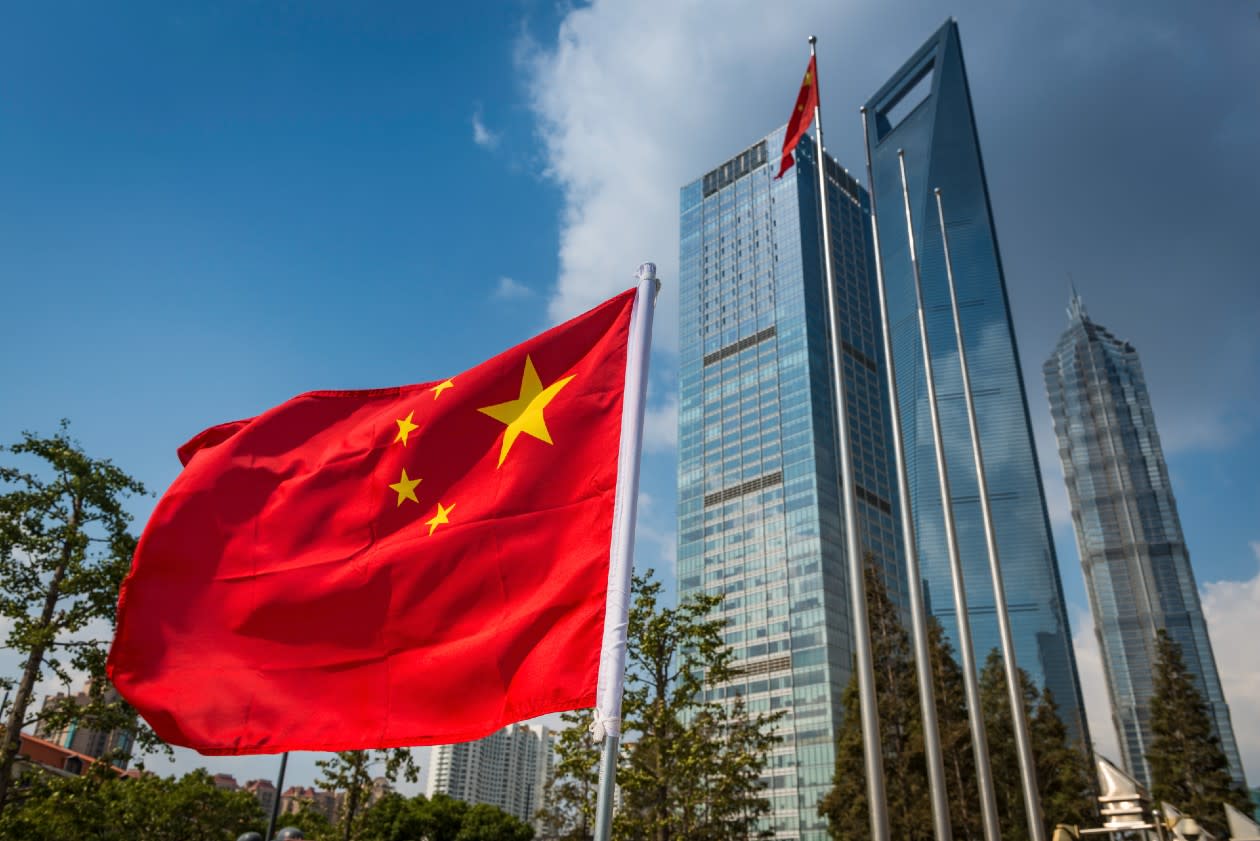We’ve all heard the stories about how hard it is for active managers in the US to outperform at the moment.
With just a handful of stocks (like NVIDIA) having contributed so much of the index performance, active managers just can’t own enough of them to keep up.
Perhaps less talked about is how this same phenomenon affects fund managers in other parts of the world.
If you own a dedicated Chinese fund, you might well be asking yourself whether active Chinese managers can outperform.
We’d argue the short answer to that question is yes. The longer answer includes ‘but maybe not right now’.
Why are active fund managers struggling in China?
To illustrate this slightly cryptic answer, let’s take a look at the MSCI Golden Dragon index.
This is a commonly used index that captures the performance of large and medium-sized Chinese stocks (including some listed in Hong Kong and Taiwan).
It’s currently made up of 771 stocks, so on the face of it it’s a well-diversified index. Dig a bit deeper though, and you’ll see that it’s not quite as well diversified as it first appears.
If you take a look at the top 10 holdings, you’ll see that largest stock in the index is a company called Taiwan Semiconductor (sometimes known as TSMC).
TSMC, as the name suggests, manufactures semiconductor chips and has done well from the recent boom in AI and technology stocks. This stock made up a whopping 19.79% of the MSCI Golden Dragon index at the end of July.
However, no fund manager is going to hold that much of one stock. Why? Because it wouldn’t make for a very diversified portfolio.
Owning almost 20% in one stock sounds great if it’s going up faster than the rest of the market, but doesn’t feel so clever when that same stock falls.
Fund managers will always have a more diversified portfolio than that, and regulation means that the most they can own in any one stock is 10%.
So back to Taiwan Semiconductor.
Over the 12 months to the end of July 2024, this stock was up 70.06%* (total return in sterling terms) compared to 0.62% for the broader Golden Dragon index.
Given the stock makes up nearly 20% of the index, this implies that most other stocks in the index suffered significant falls in value over this time. In this kind of scenario, it will be almost impossible for an active manager to outperform.
This article isn’t personal advice. All investments can rise and fall in value, so you could get back less than you invest. If you're not sure what’s right for you, ask for financial advice. Past performance isn’t a guide to the future.
So, should you give up on active managers in China?
We don’t think so.
While one stock (or a small handful) leading the market might sound all too familiar at the moment, it’s not the norm.
When we revert to a more normal environment, like the one we’ve seen in the last month or two, active managers can once again come to the fore to try and outperform over the long term.
In a market like China, there are lots of risks. We think that having an expert to manage your money and analyse those risks makes a lot of sense.
So, don’t give up on active management in China just yet.
But if you’re going to buy a single country fund, you might have to be prepared for a bit of a bumpy ride.
If you do want to invest in China though, here are two funds you could consider.
Investing in these funds isn’t right for everyone. Investors should only invest if the fund’s objectives are aligned with their own, and there’s a specific need for the type of investment being made. Investors should understand the specific risks of a fund before they invest, and make sure any new investment forms part of a diversified portfolio.
For more details on each fund and its risks, use the links to their factsheets and key investor information.
FSSA Greater China Growth
Managed by the experienced Martin Lau, this fund focuses on the greater China region.
The manager looks for companies with a competitive advantage that others struggle to replicate. This is something like a well-known brand or the ability to raise prices for their products, without affecting demand from customers.
The fund has performed well over the long term, and has done better than its peers in the region over most time frames.
It’s struggled to beat its benchmark in the shorter term though, despite having close to the maximum allowed holding in Taiwan Semiconductor (9.3% as at the end of July 2024).
The fund can invest in emerging markets, and smaller companies which can increase risk. As it’s focused on a single region, it should only ever make up a small amount of a portfolio.
Annual percentage growth
July 2019 To July 2020 | July 2020 To July 2021 | July 2021 To July 2022 | July 2022 To July 2023 | July 2023 To July 2024 | |
|---|---|---|---|---|---|
FSSA Greater China Growth B Acc GBP | 10.69 | 17.06 | -10.95 | -2.08 | -9.98 |
IA China\Greater China TR | 17.49 | 5.26 | -14.28 | -10.19 | -16.18 |
MSCI Golden Dragon TR USD | 12.91 | 5.89 | -12.61 | -1.74 | 0.62 |
Schroder Asian Alpha Plus
If you’d like some exposure to China without the market ups and downs of a single country fund, you could consider a broader Asian fund.
The Schroder Asian Alpha Plus fund invests across Asia (but not Japan).
At the end of July, it had 16.4% invested in China with a further 19.8% in Taiwan and 11.7% in Hong Kong. It also has allocations to India, Korea, Singapore and a few other countries, including some emerging market economies. Remember though, investing in emerging markets can increase risk.
The manager, Richard Sennitt, has an extensive track record of investing in Asia and aims to spot companies with exciting potential before they’re noticed by other investors.
At the end of July, the fund had 9.2% invested in Taiwan Semiconductor.
The fund can invest in smaller companies and derivatives, which can increase risk. As it’s focused on a single region, it should only ever make up a small amount of a portfolio.
Annual percentage growth
July 2019 To July 2020 | July 2020 To July 2021 | July 2021 To July 2022 | July 2022 To July 2023 | July 2023 To July 2024 | |
|---|---|---|---|---|---|
Schroder Asian Alpha Plus Fund Class L Acc GBP | 5.64 | 21.44 | -8.33 | 1.43 | 4.64 |
IA Asia Pacific Excluding Japan TR | 0.71 | 18.22 | -5.56 | 0.13 | 4.49 |
MSCI AC Asia ex Japan TR USD | 5.07 | 12.68 | -8.20 | 0.82 | 6.78 |


